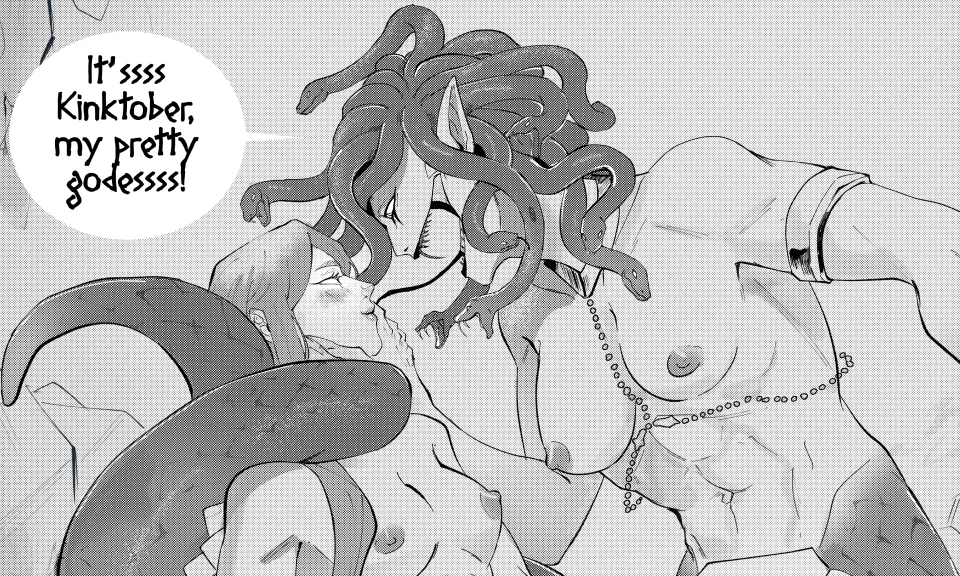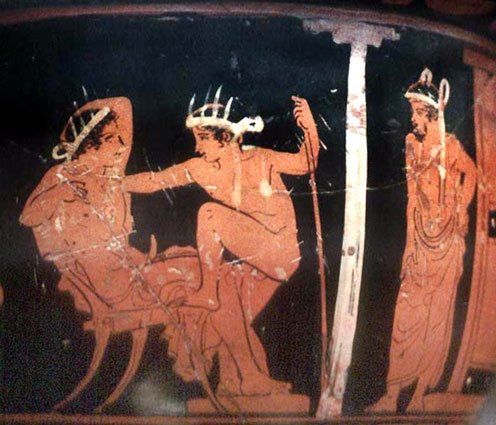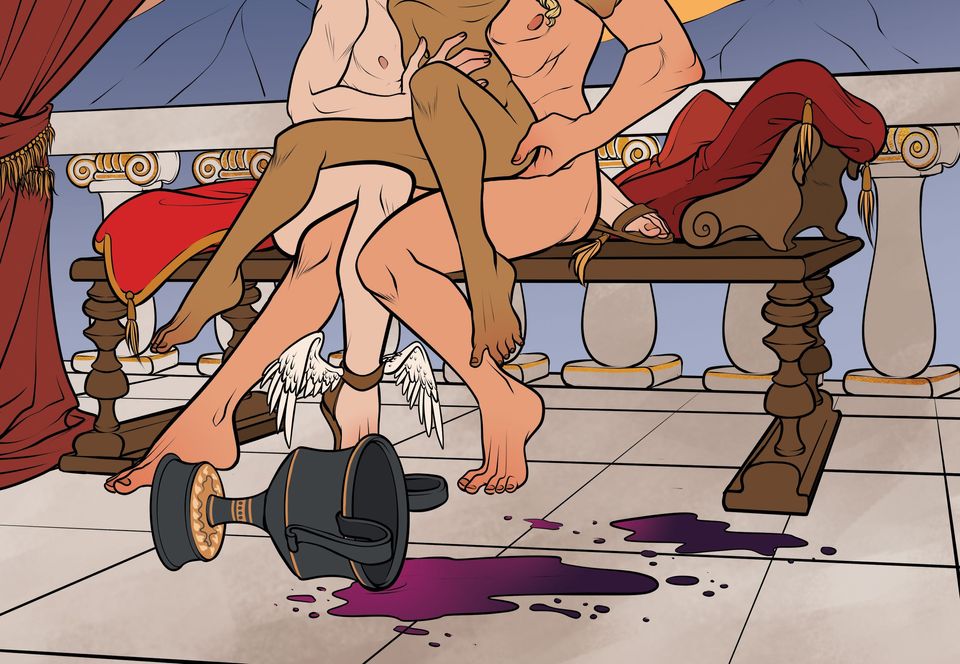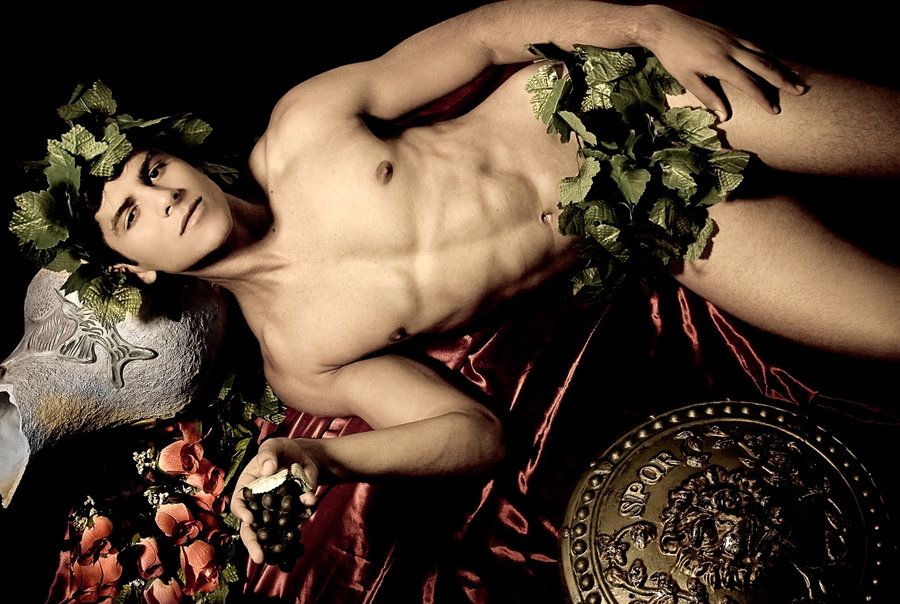Review: Hermes and Perseus by David Molina

I found this book browsing for Hermes and Perseus because honestly they are the OTP and apparently someone that isn't me thought so too.
What's apparent from the get go is that the English is not the best. The author is from Puerto Rico and I assume English is not his native language. It's not so bad that the text is unintelligible, but it's apparent in most sentences. The plot is over-the-top funny at times but it kept my attention for most of the book because I wanted to know what happens next.
Story
The story starts with Perseus a few years after his adventures when he has become king. He is married to Andromeda but when he runs into Hermes, who helped him on his quest to slay Medusa, he becomes aware there may be more than gratitude he feels for his half-brother. A convoluted scheme follows in which it's established that Hermes is immune to the powers of Aphrodite and, by extension, Eros, like the virgin goddesses of Olympos. But Perseus gets three potions to compliment his natural charms and skills. I liked this part of the story best, and I thought the idea quite original. But this plot ends about halfway through the book if not sooner.
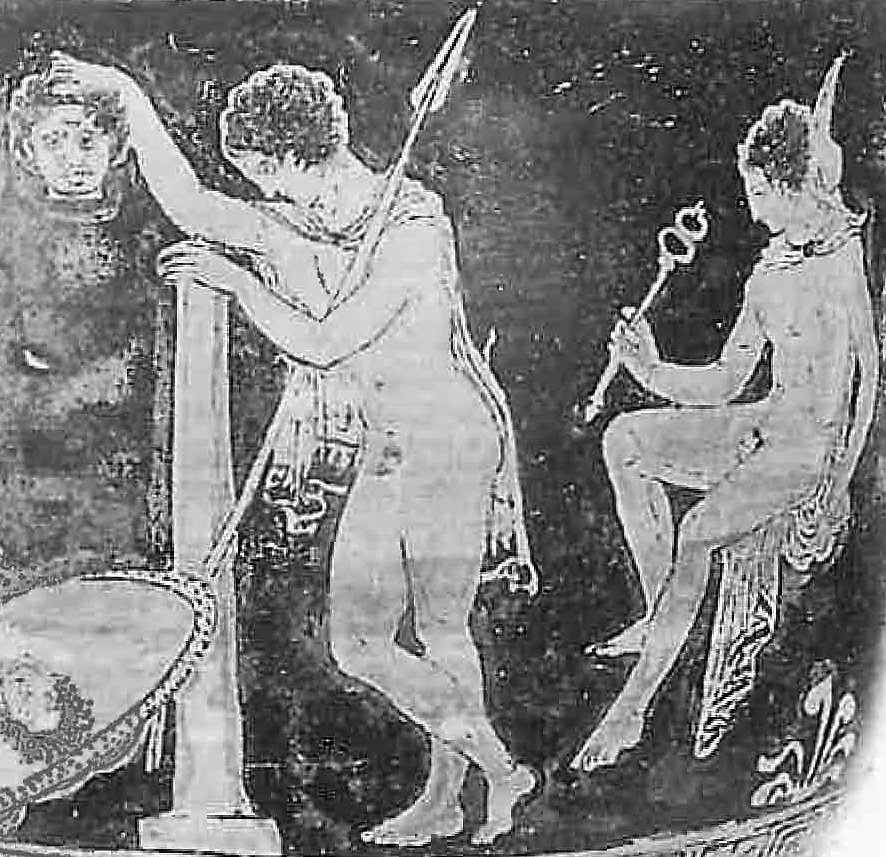
The setting is supposed to be ancient Greece, but there is some artistic license, like a gypsy woman selling jewellery in "the city of Crete" or Hermes wearing "wolf-skinned slippers". Though I suppose the latter could pass for eccentric rather than an anachronism. The attitude of characters towards the same-sex couple are also pretty modern, though to be fair, I think marrying a man would indeed have caused a stir back then.
The biggest flaw of this story is the execution. There are countless plot threads, almost all of which are resolved immediately. For instance, when Perseus tells his wife Andromeda that he intends to live with Hermes, the conflict is immediately resolved. First, by the reveal that Andromeda is having an affair with one of her servants and then by her easily giving in to Perseus and she even agrees to help him find a gift for Hermes. Another example would be when Aphrodite tells Hermes he has to go to the Fates if he wants to make Perseus immortal and she already made an appointment for him and by the way, it's scheduled to happen in a few minutes. There are more plot points that should have been introduced earlier in the story - in my opinion - but are only mentioned right before they are resolved.
It is a bit of a shame, because the story itself is rather cute. Perseus falls in love with Hermes (or has already loved him back when he helped him slay Medusa, the story is not entirely clear on this) and tries to win him. It works eventually, and Perseus has to find a way how to deal with his wife. Hermes is uncertain about the whole thing since Perseus is mortal and he is not. They split. But Hermes finds out that if he wins the votes of his fellow Olympians, he can make Perseus immortal. And finally a happy ending with a wedding ceremony on Mount Olympos.
Mythology
The book plays fast and loose with the original mythology, but never to a point where I thought it was too much. The only thing that really bothered me was that Demeter is introduced as a sister of Hermes rather than his aunt. Which may be a bit petty, but it bothered me.
Poseidon, who votes against Perseus becoming immortal, is speaking out against same-sex love even though in Greek mythology, he had male lovers himself. That one was a bit odd, because there are other deities that would have had more reason to be opposed to male lovers, but apparently the Demeter thing bothered me more.
Of course Hermes is not immune to the power of love or the arrows of Eros. He falls in love and lusts after both men and women. And one of his lovers in myth was Perseus, actually. But I liked the idea with the three potions and it served a narrative purpose.
And then, there is this claim made by Zeus in a conversation with Hermes:
"There is not anything I would [not] do for her and she for me."
Hermes doesn't comment on this, so it's left unclear if in this universe Hera just doesn't attempt to kill her husband's illegitimate children or if he's just full of shit, since he obviously did father Perseus with Danaë. But I found the thought of Zeus saying this to Hermes while constantly cheating on his wife pretty funny.
Favourite Quote
There were a few quotes that I loved and since I criticised the style in this review, I'm going to share more than one quote.
"I'm mad because I love him and I'm mad because I don't want to think of not loving him."
"After some time they got up and dressed as the sun had now completely vanished and a violet blue sky cloaked the world."
"He is a member of my family. He is a god."
"A god? Which one? You are a son of Zeus, so all the gods are related to you."
Conclusion
I'm a bit on the fence about this book. The storytelling is so flawed, that I cannot wholeheartedly recommend it, but the story is not without merit. I suggest that if you are interested in giving it a read, look at the preview provided by Amazon. It gives a pretty good idea about the narrative style of the book.
Get "Hermes and Perseus" by David Molina here.
Browse Greek mythology erotica written by me here.
Is there any mythology erotica you think I should review? Let me know in the comments!
